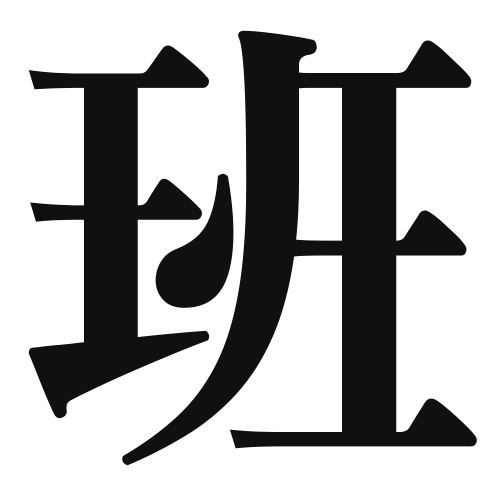1. Overview of Meaning
The kanji “班” (han) generally means “group,” “class,” or “team.” It is often used to refer to a division of people or things that work together towards a common goal.
2. Formation and Radical
The kanji “班” is a compound character (会意文字) that combines two elements: the left part “毛” (meaning “fur” or “hair”) and the right part “半” (meaning “half”). This combination suggests a division or grouping of something.
The radical of “班” is “毛,” which is often associated with things that are related to hair or fur, but in this context, it contributes to the idea of grouping.
3. Examples of Usage
Common words and phrases that include “班” are:
- 班長 (はんちょう, hanchou) – class leader
- 班分け (はんわけ, hanwake) – grouping
Example sentence in daily conversation:
「私たちの班はプロジェクトを成功させました。」 (Watashitachi no han wa purojekuto o seikou sasemashita.) – “Our group successfully completed the project.”
4. Synonyms and Antonyms
Similar kanji with related meanings include:
- グループ (guruupu) – group (borrowed from English, used in a more casual context)
- チーム (chiimu) – team (also borrowed from English, often used in sports)
Antonyms include:
- 孤立 (こりつ, koritsu) – isolation, which conveys the opposite meaning of being part of a group.
5. Cultural and Historical Background
The kanji “班” is often used in the context of Japanese culture, particularly in educational settings where students are divided into groups for projects or activities. It reflects the importance of teamwork and collaboration in Japanese society.
Proverbs and idioms related to “班” include:
- 「一人は皆のために、皆は一人のために」 (Hitori wa mina no tame ni, mina wa hitori no tame ni) – “One for all, and all for one,” emphasizing the spirit of teamwork.
